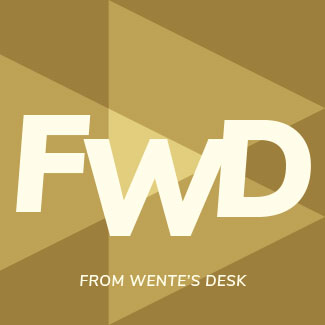Big Moments are Learning Moments

Over winter break, I spent time thinking about my mentor and teacher, the late Dr. Howard Schachman. Last year, I was asked by the National Academy of Sciences to co-write a tribute to Howard, and it has been an honor to do so. Howard was my professor and thesis advisor in graduate school at the University of California Berkeley in the then department of biochemistry. When he passed away in 2016, he left a legacy of both outstanding scientific work and imprints on the careers of many scientists like me.
Howard’s mentorship shaped the trajectory of my career. Indeed, in my PhD research I worked with him on aspartate transcarbamolyase, an enzyme that formed the basis of my learning of protein biophysics and inspired my passion for understanding how protein activity is regulated in cell function in the years afterward. But writing this memoir with my co-author Angela Creager, a professor at Princeton, clarified for me how much I learned from Howard beyond the enzyme, beyond the laboratory: valuable lessons I have taken with me throughout my career.
Nearly every afternoon at 3 p.m. when I was a graduate student, Howard would invite our lab team for coffee (or in my case, Diet Coke) and share incredible stories that challenged me and broadened my perspective and understanding of universities and public life.
He told us how in 1949 he and all faculty were forced to sign a state loyalty oath; how in the 1960s he advocated for the students who were protesting the Vietnam War; how his efforts across his career held the university accountable for its commitment to free speech; how he advocated for clear policies on sharing research data and on scientific misconduct.
As my co-author Angela and I noted in our memoir of Howard, these afternoon coffee sessions taught both of us that universities cannot separate themselves from the realities of the world. The issues and problems society faces have, will always, and should be debated on our campuses. We cannot ignore them. They will affect us. We are engaged in learning and scholarship to address these problems, and we have a special obligation to respond in ways that live up to our mission and values.
Big moments – of tension, of challenge, of change – are learning moments for us all. They prepare our students for their life journeys. They awaken us as scholars to the urgent questions of our time and inspire us to seek solutions. They invigorate us as teachers and scholars to use our expertise, our passion, and our knowledge to create the living and learning environments for our students to discuss, to explore, to reimagine our real world. And not to do so as mere academic exercise, but instead as a practice of living a life of ethical engagement with our communities – as a daily aspiration to be catalysts for good.
Academic freedom and free expression are fundamental to the role of universities in the lives of our students and in public life. My confidence in this is drawn from my many conversations on our campus; from my experiences as a teacher, scholar, and administrator across an over thirty-year career in higher education; and from those many foundational conversations with Howard all those years ago.
This semester, we will have more opportunities to grapple with the notions of academic freedom and free expression in our own community. A team of faculty and staff– led by Provost Michele Gillespie – will begin the next phase of our collective effort to refine an updated academic freedom and freedom of expression statement for Wake Forest. This document will articulate the shared principles and philosophy that forms the basis of our academic community. I invite you all to engage in this process, in the spirit of civil discourse and rich history of debate and dialogue at Wake Forest, by attending one of the campus conversations taking place this spring.
One last note on lessons from Howard: though a serious scholar who sagely navigated challenging times in higher education across his career – Howard protected, relished in, and regularly called on his sharp sense of humor. Angela and I both reminisced about the laughter we shared with Howard and our fellow graduate students during those afternoon coffees. Humor, laughter, and joy may – to some – seem like distractions from important, intellectual work. But I encourage us to embrace the joy and laughter that build relationships. A healthy sense of humor feeds critical thinking (and vice versa). And, critical thinking and relationship-building encourages collaboration – the kind of creative collaboration we will need as we continue to build and shape Wake Forest for our third century and beyond.
Categories: From Wente's Desk
